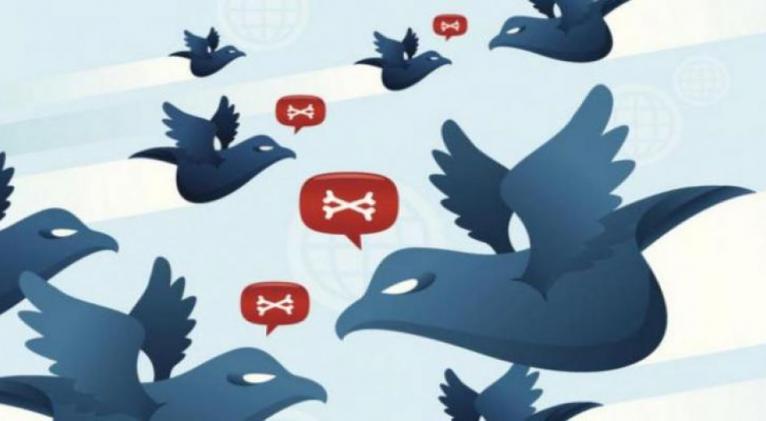Internet and the dirty U.S. war on Cuba
especiales

Funds allocated by the U.S. government to promote regime change in Cuba are euphemistically camouflaged as "pro-democracy programs" to finance mercenary groups, scholarships to train young Cubans as fake leaders, and a dirty Internet war.
One of the most widespread falsehoods disseminated about Cuba is to present the Cuban Revolution as an enemy of the Internet. This lie is based on distortions of our condemnation of U.S. strategies using telecommunications in its anti-Cuban efforts, while the fact is hidden that Wall Street does everything it can to limit our people’s access to those technologies.
Our e-mails, tweets, online presentations and Facebook posts contribute to the massive volume of data generated every day on the Internet. Today, analysts can construct models capable of predicting political preferences, sexual orientation, etc, all from the information that users themselves provide on social networks.
It has been documented that the Political Action Group (GAP) which is part of the Central Intelligence Agency’s Special Activities Center, carries out projects that include the creation of communications and Internet access structures in countries or regions targeted for aggression.
In Bolivia, more than 68,000 fake Twitter accounts were created in the days leading up to the coup of November, 2019. Meanwhile, Iran suffered a wave of violence, during which the same tactic used in Bolivia was repeated: armed groups, perfectly coordinated, used the technique of "swarming" to communicate, organizing actions with text messages establishing meeting points for attacks. The aggression came to a halt when the government shut down the Internet and wireless networks, as occurred during the 2009 elections, in what became known as the Green Wave.
In February of 2018, the so-called Cuba Internet Task Force was created, following instructions outlined in a Presidential memorandum on national security, released June 16, 2017. The website Razones de Cuba has documented that the CIA’s Political Action Group and institutions on the task force have highly qualified specialists who, based on models previously developed through Big Data, sent sector-specific messages to Cubans.
In June of 2019, a Twitter storm supposedly organized by Cuban users, called on our telecommunications company Etecsa to lower Internet prices. The same source reveals that an attempt was made to present this as an initiative by students, computer engineers, etc, but the alleged activists actually lived in Florida, Texas, Tennessee and Georgia. Another attempt at manipulation occurred in connection with the Constitutional Referendum, using the hashtag #YoVotoNo on Twitter.
Linked with counterrevolutionary sites and networks, thousands of false accounts flooded the island with their message, prefabricated commentators conducted "analyses" of the "Cuban situation," using well studied resources, seeking to emotionally mobilize previously identified audiences, via humor, indignation, and surprise.
The recent campaigns to discredit revolutionary artists, and the cowardly defacing of monuments to José Martí, are part of this war, with its digital correlate, that seeks to create the conditions for a "Green Wave" on the island.
The controversial Helms-Burton Act of 1996 established the obligation to fund these destabilization programs. The figure has varied under different U.S. administration since then, but the average allocation is close to 20 million dollars annually.
These funds to promote regime change in Cuba, are euphemistically camouflaged as "pro-democracy programs," which finance mercenary groups, scholarships to train young Cubans as fake leaders, and the dirty Internet war
Specifically, the Task Force, activated two years ago, given the importance of digital platforms, seems to be a defensive action by a government that has run out of ammunition in its rhetoric about how Cuban authorities deny the population access to technology, and is using this form of aggression, as illegal and interventionist as Radio and TV Martí. These are the risks for our insertion into the cyber world, but the Revolution will continue to prepare its citizens to detect these maneuvers, while expanding access to this new scenario for its social base.













Add new comment